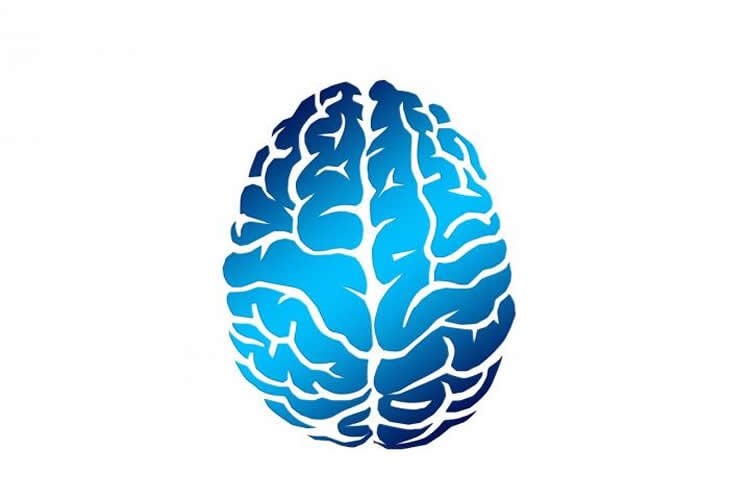Summary: Contrary to existing thought, researchers report transcranial direct current stimulation is not as effective at improving memory in older people as it is in younger adults.
Source: University of Chicago at Illinois.
We’ve all asked ourselves these types of questions: Where did I leave my keys? What was his name? Where did I park my car?
As people grow older their memory tend to get poorer, so finding ways to improve it is an important matter of investigation given the longer contemporary lifespans that people are experiencing.
Recent research has shown that stimulating the brain with a mild electric current, known as transcranial direct current stimulation, can improve memory in both younger and older adults.
In a study published online for a forthcoming special issue on the cognitive neuroscience of aging from the Journals of Gerontology: Psychological Sciences, researchers at the University of Illinois at Chicago tested these outcomes by having younger and older sets of participants – 48 people between the ages of 18 and 35, as well as 48 adults between the ages of 60 and 79 – try to learn information and remember 60 face-name pairs.
Some of the study participants were given stimulation, and others received sham, or fake, stimulation. Their memories were tested both immediately after stimulation and again 24 hours later to assess effects on memory the following day.
Ultimately, the researchers found that while the younger adults showed memory improvement from stimulation, the older adults did not.
“On average the amount of improvement that younger adults showed from brain stimulation was a 50 percent improvement in memory,” said Eric Leshikar, UIC clinical assistant professor of psychology and corresponding author of the study. “Importantly, we found these memory improvements both immediately after stimulation, as well as after 24 hours, suggesting that brain stimulation can effectively improve memory.”

The results contradict findings from previous studies that showed that a slight electoral current through the scalp had a greater effect on cognition for older adults compared to younger adults.
Leshikar says future work will look at whether using different stimulation procedures can help propel older adults to experience memory improvement.
“It very well may be that older adults may show memory improvement from stimulation, but perhaps not under the stimulation procedures we used in this study,” he said.
Ryan Leach of Loyola University; Matthew McCurdy of UIC; along with Laura Matzen and Michael Trumbo of Sandia National Laboratories are co-authors of the paper.
Funding: The research was supported by a National Institute on Aging grant (P30AG022849) provided through the Midwest Roybal Center for Health Promotion and Translation.
Source: Brian Flood – University of Chicago at Illinois
Publisher: Organized by NeuroscienceNews.com.
Image Source: NeuroscienceNews.com image is credited to UIC.
Original Research: Open access research in Journal of Gerontology: Psychological Sciences and Social Sciences.
doi:10.1093/geronb/gby003
[cbtabs][cbtab title=”MLA”]University of Chicago at Illinois “Brain Stimulation Helps Younger, Not Older, Adults’ Memory.” NeuroscienceNews. NeuroscienceNews, 1 March 2018.
< https://neurosciencenews.com/memory-aging-brain-stimulation-8585/>.[/cbtab][cbtab title=”APA”]University of Chicago at Illinois (2018, March 1). Brain Stimulation Helps Younger, Not Older, Adults’ Memory. NeuroscienceNews. Retrieved March 1, 2018 from https://neurosciencenews.com/memory-aging-brain-stimulation-8585/[/cbtab][cbtab title=”Chicago”]University of Chicago at Illinois “Brain Stimulation Helps Younger, Not Older, Adults’ Memory.” https://neurosciencenews.com/memory-aging-brain-stimulation-8585/ (accessed March 1, 2018).[/cbtab][/cbtabs]
Abstract
Differential Age Effects of Transcranial Direct Current Stimulation on Associative Memory
Objectives
Older adults experience associative memory deficits relative to younger adults (Old & Naveh-Benjamin, 2008). The aim of this study was to test the effect of transcranial direct current stimulation (tDCS) on face-name associative memory in older and younger adults.
Method
Experimenters applied active (1.5 mA) or sham (0.1 mA) stimulation with the anode placed over the left dorsolateral prefrontal cortex (dlPFC) during a face-name encoding task, and measured both cued recall and recognition performance. Participants completed memory tests immediately after stimulation and after a 24-h delay to examine both immediate and delayed stimulation effects on memory.
Results
Results showed improved face-name associative memory performance for both recall and recognition measures, but only for younger adults, whereas there was no difference between active and sham stimulation for older adults. For younger adults, stimulation-induced memory improvements persisted after a 24-h delay, suggesting delayed effects of tDCS after a consolidation period.
Discussion
Although effective in younger adults, these results suggest that older adults may be resistant to this intervention, at least under the stimulation parameters used in the current study. This finding is inconsistent with a commonly seen trend, where tDCS effects on cognition are larger in older than younger adults.






